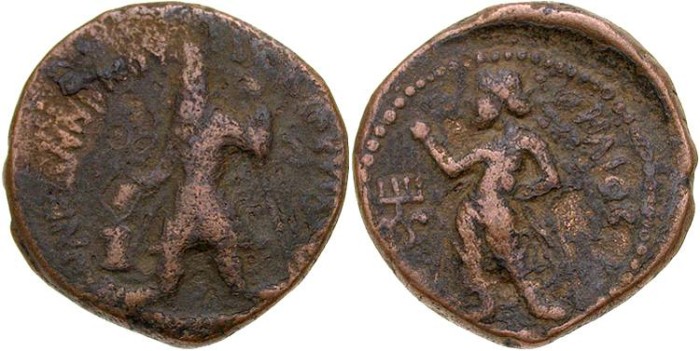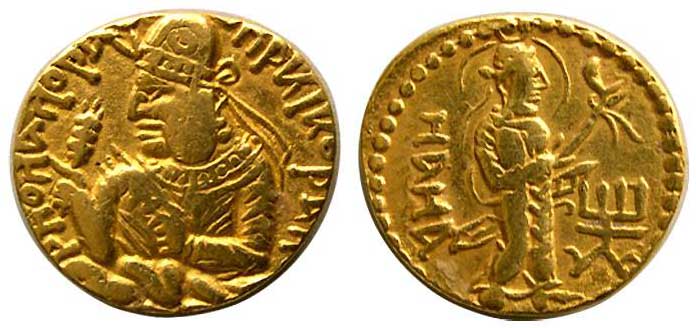
Kushan kings introduced gold and copper coins, a large number of them have survived till today. He carries trident and has third eye on his forehead, which is clear in the votive panel, shown on left. Shiva is a prominent Hindu god, often shown in human form as one or three headed (actually considered to be four or even five headed, with three visible heads) with or without bull Nandi, his vehicle. Soon he came under influence of `early' Hinduism and took opportunity to proclaim himself Mahishwara, another name for Lord Shiva, on his coins. Ample evidences of trade with China, central Asia, Egypt and Rome are available which made their economy very strong and kingdom wealthy and prosperous. Kushan empire covered north west of India (includes Pakistan and modern Afghanistan) and northern India. His reign saw emergence of Kushan empire when he conquered north-western India (modern Punjab, now divided in Pakistan and India). It was his grandson Vima Kadphises (Yen-kao-chen in Chinese record) who made Kushan a paramount power of northern India. Kujula Kadphises (30-80 AD) established the Kushan dynasty in 78 AD by taking advantage of disunion in existing dynasty of Pahalava (Parthian) and Scytho-Parthians, and gradually wrested control of southern prosperous region, which is the northwest part of ancient India, traditionally known as Gandhara (now Pakistan). In 165 BC, few tribes settled in Oxus valley and established independent existence. The political disturbance in central Asia (and possibly the availability of better and prosperous land and other resources) drove these nomads out into Bactria (modern northwest Afghanistan and Tajikistan).

These nomads, who were of Indo-European stock, roamed the northwestern China but during 176-160 BC, they were driven west by another group, the Xiongnu.

The name Kushan is derived from the term Guishang, used in Chinese historical writings to describe one branch of the nomadic people, called Yuezhi or Yuechi.


 0 kommentar(er)
0 kommentar(er)
